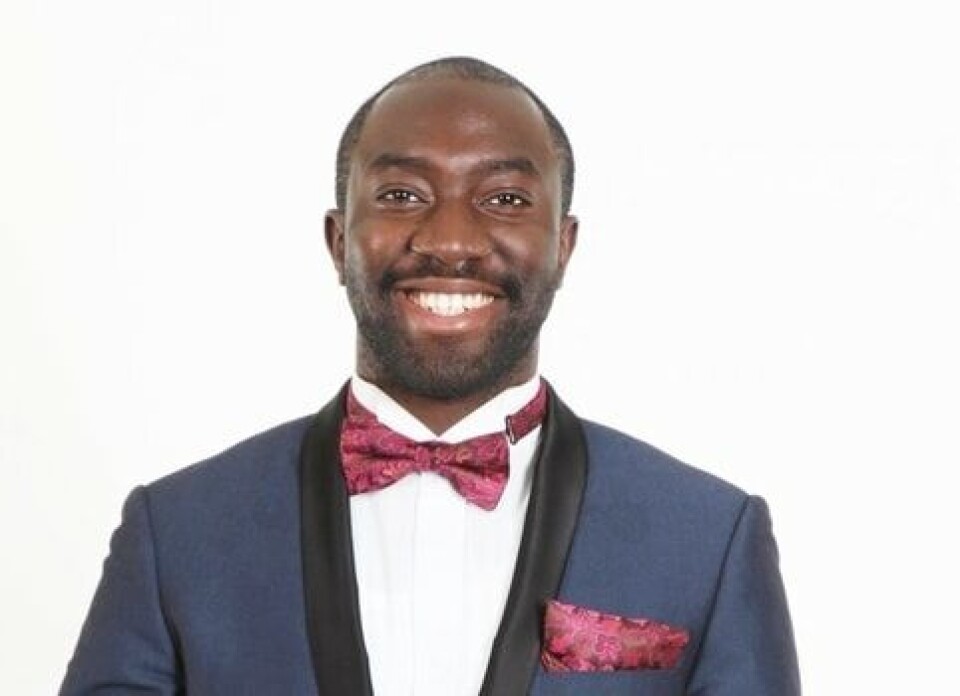Copyright : Re-publication of this article is authorised only in the following circumstances; the writer and Africa Legal are both recognised as the author and the website address www.africa-legal.com and original article link are back linked. Re-publication without both must be preauthorised by contacting editor@africa-legal.com
Time Stopped to Shed a Tear

Adetokunbo ‘Toks’ Hussain is a legal intern in the Office of the President at United Nations International Residual Mechanism for Criminal Tribunals. He spoke to Carol Campbell.
There was a moment, when 26-year-old Hussain was working as Assistant to Counsel in the Independent Tribunal into Forced Organ Harvesting from Prisoners of Conscience in China (China Tribunal), when time stopped.
“One of the Chinese interpreters broke down as he attempted to translate the gruesome and heart-wrenching account of a witness describing her ordeal of violence and abuse,” Hussain says.
For the young lawyer, now based in The Hague where his role combines international criminal law and diplomacy, it was a turning point that cemented his vocation in international criminal law.
“The late UN Secretary-General Kofi Annan said, ‘This cause…is the cause of all humanity ’. I want to help serve the cause of humanity and international justice.”
The Office of the President at the United Nations International Residual Mechanism for Criminal Tribunals performs the essential functions that used to be carried out by the International Criminal Tribunal for Rwanda (ICTR) and the International Criminal Tribunal for the former Yugoslavia (ICTY).
“I was first made aware of this internship by my international law professor at university, although I did not pursue it. I spent some time working on international human rights projects, diplomacy and counter-terrorism initiatives courtesy of the Kofi Annan Foundation. Here I built up my oral advocacy skills by representing clients in Tribunals pro bono and I also took specialised courses in international criminal and humanitarian law.”
He was subsequently selected to work as an Assistant to Counsel in the China Tribunal, led by a former ICTY prosecutor (Sir Geoffrey Nice QC), after which he transitioned to The Hague.
Hussain explained that the Mechanism has two branches: one in The Hague in the Netherlands and the other in Arusha in Tanzania.
“The rationale being that The Hague branch focuses more on ICTY (Yugoslavia) cases, while Arusha focuses on ICTR (Rwanda). Sometimes they overlap.”
By virtue of its location, the Arusha branch attracts African lawyers.
“It is incredibly empowering to have African lawyers involved in international criminal justice. Generally, the subject of ‘Africa’ and ‘international criminal justice’ tends to evoke strong reactions so, in my mind, it is proper for Africans to be active in this field.”
A focus of the Mechanism is still very much the genocide in Rwanda with this work being done in Arusha.
“For example, the contempt case of Prosecutor v. Augustin Ngirabatware, involving Ngirabatware, a Rwandan politician who was convicted by the ICTR for direct and public incitement to commit genocide during the Rwandan Genocide.”
Currently, notable African players in international criminal justice include the Mechanism’s Registrar, Olufemi Elias, and his deputy, Michael Adenuga, who are both of Nigerian heritage. The President of the International Criminal Court (ICC), Judge Chile Eboe-Osuji , is Nigerian and the ICC Prosecutor, Fatou Bensouda, is Gambian. Within the broader United Nations (UN), the President of the General Assembly, Tijjani Muhammad-Bande, is Nigerian and the President of the International Court of Justice, Abdulqawi Ahmed Yusuf, is Somali.
“It is a source of pride to see these inspirational people making important strides and it provides impetus for the younger generation of lawyers.”
Nevertheless, Hussain says, more can and should be done to improve diversity in the international and domestic criminal justice system “Especially in my home jurisdiction of England & Wales.”
Hussain was inspired by Justice Robert Jackson, who opened the Nuremberg Trials, after World War II, and the UK’s Lady Brenda Hale, President of the Supreme Court.
He was born in Warsaw in Poland to a Nigerian family. Although he moved around before settling in London where he grew up. His alma mater is the University of Oxford Brookes, where he was twice elected President of the Law Society.
Hussain undertook his Bar Professional Training Course and LLM at BPP Law School and is an alumnus of the Sir Geoffrey Nice QC Foundation international criminal law programme, Harvard University’s Justice Course and has trained with the Association of Defence Counsel Practising before the International Courts and Tribunals (ADC-ICT).
Outside of his role role in the Mechanism, Hussain represents the President’s Office in the intern-led Careers Development Committee. He is also the Co-Head of the British Nigeria Law Forum, Junior Lawyers Division and recently received the BNLF Rising Star award in London.
*All views expressed in this interview are Hussain’s own.
**Editor’s Note: When the China Tribunal presented its findings to the UN Human Rights Council in September 2019 it found that the Chinese Government was harvesting and selling organs from persecuted religious and ethnic minorities.
